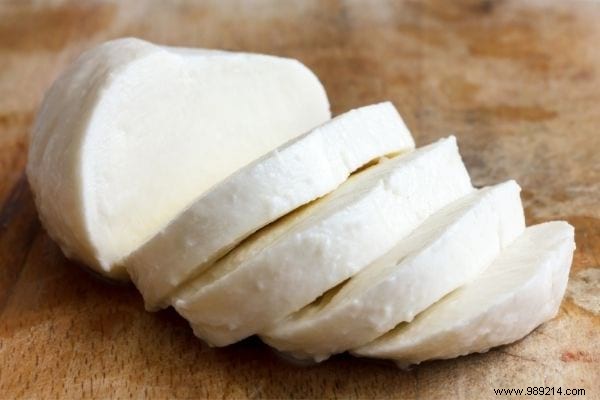
Can you freeze cheese ?
I have often asked myself this question because I always buy too many.
Eyes bigger than stomach, you know?
It's true that you can freeze a lot of things. So why not cheese?
To get to the bottom of it, I asked my cheese maker for advice and this is what he told me.
Yes, you can freeze cheese!
But beware, there are important rules to follow. Watch:


1. The first of the rules is unavoidable. You have to be sure that this cheese has never been frozen before. Otherwise you risk food poisoning.
2. Once this check has been made, place it in the fridge for a few hours. This preserves its taste qualities and speeds up freezing.
3. Before putting it in the freezer, wipe its surface with a clean tea towel. The goal is to prevent the formation of mold.
4. Does your cheese weigh more than 500g? So, cut it into 2 or 3 pieces. Then freeze the pieces separately. This way, the freezing of your cheese is homogeneous. By the way, you can just as well cut it into slices or grate it. This makes it easier to use later.
5. Store your piece of cheese in its original packaging. Then put it in a freezer bag. Be sure to expel as much air as possible before closing it. You can also put it in an airtight glass box. Avoid plastic containers. Why ? Because they can take on the smell of cheese!
6. Indicate on the bag or box the date of freezing and the name of the cheese.
And now, all that remains is to put the cheese in the freezer!
It's easy and convenient, isn't it? Plus, it saves you money.
Now that we know how to properly freeze cheese...
Another question arises:can all cheeses be frozen?

Be aware that some freeze less well than others.
But there is an important rule to know.
Note this:the less water there is in the cheese, the better it freezes.
Let's be clear, cheeses with a high water content can also be frozen.
The problem is that their texture is damaged.
But either way, rest assured. There is no health risk.
Here are the cheeses that can be safely frozen:

There are so many different goat cheeses that there is no single answer.
Droppings and all the dry goats keep very well without changing their taste or texture.
Alas, this is not the case with fresh goat cheese.
It can also be frozen.
But its texture changes when frozen.
It then becomes more floury and therefore less good.

List of cheeses: Comté, Gruyère (grated or not), Emmental, Abundance, Beaufort, Gouda...
All these cooked pressed cheeses can be frozen without worry.
Freezing preserves all the flavor and texture of this type of cheese.

List of cheeses: raclette, morbier, cantal, reblochon, saint-nectaire, cheddar, tome du Jura or Savoie...
All of these uncooked pressed cheeses can be frozen.
No problem freezing the raclette. You can freeze the whole piece or the slices.
Just put them in a closed freezer bag.
The others also freeze very well.
The taste and texture keep quite well.

List of cheeses: camembert, brie, coulommiers, neufchâtel, saint-marcellin, chaource, brillat-savarin, maroilles, livarot, munster, époisses, langres, mont d'or, pont-l'évêque, banon, rocamadour, pélardon, chabichou du Poitou, macônnais , saddles-on-expensive.
All these soft cheeses with a bloomy, natural or washed rind can also be frozen.
Camembert can be frozen in its original box or in individual slices.
But wait, we haven't told you everything yet...
Yes, they can be frozen, but their texture deteriorates slightly with freezing.
It becomes a little mealy and loses its softness.
However, better than throwing them away, right?
Not to mention that they are perfect for garnishing Breton pancakes, making a roasted camembert, a pizza, a tartiflette or a gratin...

List of cheeses: roquefort, bleu d'Auvergne, fourme d'Ambert, stilton...
All these blue-veined cheeses can be frozen without risk to health.
Unfortunately, they do not tolerate freezing well.
Why ? Because they become dry and crumble.
That being said, they can absolutely be used to spice up a pizza, decorate a salad, make a sauce, or even in a Breton pancake.

List of cheeses: mozzarella, ricotta, mascarpone, feta, boursin, saint môret, philadelphia, fresh tome from Aubrac.
All these fresh cheeses contain a lot of water.
And you can imagine... Freezing them is possible, but not recommended.
Because their texture becomes more lumpy after defrosting.
But to melt on a pizza or in a gratin recipe, you won't notice the difference.
Know that you can freeze cow's milk mozzarella or di bufala with its juice... or without!
In this case, cut it into slices.

List of cheeses: white cheese, cottage cheese...
These rather liquid cheeses are the only ones that we do not recommend freezing.
Because when defrosted, they become liquid and lumpy.
But if you have no choice, it is better to freeze them in their original pot.
And when you defrost them, whisk them so that they find a more homogeneous texture.
You can then use them for cooking, for example to replace fresh cream.

List of cheeses: Savoyard fondue, Swiss fondue, cancoillotte.
All processed cheeses can be frozen.
The only precaution to take is to let them harden before putting them in the freezer.
Be aware that freezing does not completely stop ripening.
Even if it still slows down the process.
That's why you can keep it in the freezer for 2 or 3 months.
Then, the cheese loses its flavors and nutritional qualities. Its texture also changes... Even if you can still eat it!
To defrost a cheese, you have to know how to take your time.
Put it in the fridge for ten hours so that it defrosts slowly.
But then eat it or cook it quickly.